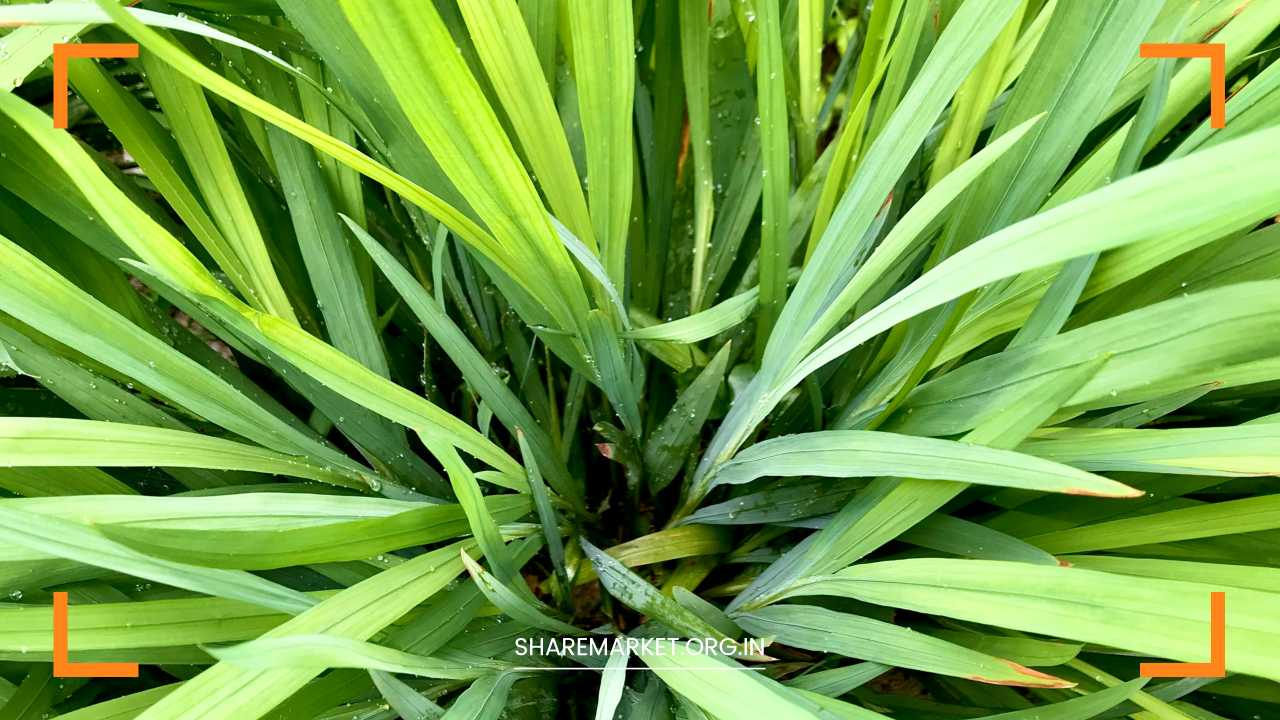Business Idea: Lemon Grass Farming

Lemon Grass Farming
Business Idea: Lemon Grass Farming for Lucrative Returns
In the ever-evolving world of business, the quest for innovative and profitable ventures is a perpetual pursuit.
The concept of Lemon Grass Farming has emerged as a shining example of a business idea that combines minimal investment with the potential for remarkable returns.
With an initial capital of just Rs 20,000, entrepreneurs can step into the world of lemon grass cultivation and unlock a pathway to substantial earnings.
In this comprehensive article, we’ll delve into the intricacies of lemon grass farming, exploring its economic feasibility, cultivation methods, market demand, and the nuances that can help transform this idea into a thriving reality.
The Lemon Grass Advantage: A Multi-faceted Opportunity
Lemon grass, scientifically known as Cymbopogon citratus, holds a unique blend of aromatic allure and economic promise.
Its essential oil, extracted from the plant’s leaves, finds its way into various industries, including cosmetics, perfumes, soaps, essential oils, and even pharmaceuticals.
This diversity of applications ensures a consistent demand for lemon grass oil, creating a favorable market environment for entrepreneurs looking to tap into this natural resource.
What sets lemon grass farming apart is its adaptability to varying climatic conditions. In regions grappling with water scarcity and challenging climates, lemon grass thrives, requiring less water and minimal fertilizer.
Its natural repellent properties also act as a deterrent to potential damage from wild animals, minimizing losses and risks.
Beyond its economic value, lemon grass farming offers a longevity rarely found in other crops. Once established, a lemon grass crop can yield bountiful harvests for an impressive span of 5 to 6 years, providing a reliable and steady income stream for farmers.
Cultivation and Harvesting: A Journey to Profit
To delve into lemon grass farming, it’s crucial to understand the cultivation and harvesting process. The optimal planting window spans from February to July, setting the stage for multiple harvesting cycles.
Each cycle, occurring three to four times annually, culminates in the extraction of essential oil from the lemon grass.
On average, a single hectare of cultivated lemon grass can yield between 3 to 5 liters of oil per year. With market prices ranging from Rs 1,000 to Rs 1,500 per liter, the economic potential is evident.
Nurturing healthy seedlings is a foundational step in lemon grass farming. Creating nursery beds in March and April ensures strong and viable seedlings that can be transplanted to the main cultivation area, setting the stage for a successful crop.
Projected Earnings and Investment Strategy
Turning the spotlight onto the financial aspect, lemon grass farming presents a promising prospect. An initial investment of Rs 20,000 to 40,000 is required to initiate the cultivation process.
This initial capital covers essentials like seeds, soil preparation, and the preliminary stages of crop care.
Subsequent to the establishment of the crop, a series of harvests commences, each contributing to the accumulation of valuable oil.
During each harvest cycle, lemon grass is processed in a manner akin to Mentha and Khus. A single cycle can yield approximately 100 to 150 liters of oil, culminating in an estimated 325 liters of oil from a hectare annually.
With market prices ranging from Rs 1,200 to Rs 1,500 per liter, the potential earnings from a hectare of lemon grass cultivation can range from Rs 4 lakh to Rs 5 lakh.
Prime Minister Narendra Modi’s Endorsement and the Road Ahead
The endorsement of lemon grass farming by Prime Minister Narendra Modi brings the credibility and potential of this business idea into the spotlight.
Highlighting farmers’ financial empowerment through lemon grass cultivation in his ‘Mann Ki Baat,’ PM Modi underscores the relevance and importance of this venture in the realm of agriculture and entrepreneurship.
Cultivating Prosperity: Unveiling the Lemon Grass Opportunity
The landscape of business is brimming with opportunities, and lemon grass farming stands out as a beacon of potential.
Beyond its financial rewards, this venture aligns with sustainable agricultural practices, harnessing nature’s abundance for valuable resources. Whether you’re a novice entrepreneur or a seasoned business enthusiast, lemon grass farming offers a path to success.
By embracing this idea and executing a strategic plan, you can not only tap into a revenue stream but also contribute to the growth of a vibrant and impactful industry.
As you embark on the journey of lemon grass farming, remember that with the right approach, dedication, and foresight, you can cultivate not just a profitable enterprise, but a legacy of growth and prosperity that can span generations.
Key Considerations for Successful Lemon Grass Farming
Embarking on a lemon grass farming venture holds the promise of lucrative returns and a sustainable business opportunity.
However, like any agricultural endeavor, careful planning and informed decision-making are essential for success. Here are some key considerations to keep in mind while venturing into the world of lemon grass farming:
1. Suitable Climate and Location: Lemon grass thrives in tropical and subtropical climates. Choose a location with well-drained soil and adequate sunlight. Conduct a soil test to ensure the soil’s pH and nutrient levels are suitable for lemon grass cultivation.
2. Varietal Selection: Select the appropriate lemon grass variety for your region. Varieties such as West Indian lemon grass (Cymbopogon citratus) and East Indian lemon grass (Cymbopogon flexuosus) are commonly cultivated for their oil extraction properties.
3. Nursery Bed Preparation: Prepare well-drained nursery beds for seedling propagation. Ensure proper aeration, irrigation, and protection from pests. Sow the seeds in rows with adequate spacing.
4. Seed Germination and Transplanting: Monitor seed germination closely. Once seedlings reach a suitable size, typically 10-15 cm, they can be transplanted to the main cultivation area. This is usually done after the last frost.
5. Spacing and Planting: Plant lemon grass seedlings with appropriate spacing, usually 45 cm between rows and 30 cm between plants. Proper spacing allows adequate sunlight and air circulation, promoting healthy growth.
6. Watering and Irrigation: Provide regular and consistent irrigation, especially during the initial growth phase. Lemon grass requires moderate water, and drip irrigation systems are recommended to prevent waterlogging.
7. Soil Preparation: Prepare the main cultivation area by plowing and tilling the soil. Incorporate organic matter to improve soil structure and fertility.
8. Pest and Disease Management: Monitor the crop for pests and diseases. Common pests include aphids, mites, and grasshoppers. Implement integrated pest management strategies, such as introducing beneficial insects or using organic pesticides.
9. Harvesting Techniques: Harvesting typically begins when the lemon grass plants are about 4-5 feet tall. Cut the leaves about 8-10 inches above the ground using a sharp knife or sickle. Harvesting is often done in the morning to retain the oil content.
10. Oil Extraction Process: Explore different methods of oil extraction, such as steam distillation or cold pressing. Each method has its pros and cons, affecting the yield and quality of the oil.
11. Market Research: Conduct thorough market research to understand the demand for lemon grass oil in your region. Identify potential buyers, including cosmetic, pharmaceutical, and essential oil companies.
12. Financial Planning: Estimate the initial investment required for cultivation, including land preparation, seeds, equipment, and labor. Create a budget that covers all stages of cultivation, from nursery bed preparation to oil extraction.
13. Marketing and Sales Strategy: Develop a marketing and sales strategy to promote your lemon grass oil. Consider online platforms, local markets, and collaboration with distributors.
14. Compliance and Regulations: Understand the regulations and compliance requirements related to essential oil production and sales in your region. Obtain any necessary licenses or permits.
15. Continuous Learning: Stay updated with the latest techniques, trends, and research in lemon grass farming. Attend workshops, seminars, and agricultural fairs to enhance your knowledge and skills.
16. Sustainability Practices: Implement sustainable farming practices, such as crop rotation, organic fertilizers, and water-efficient irrigation, to ensure long-term productivity and environmental stewardship.
Final Words: Nurturing the Lemon Grass Opportunity
Lemon grass farming presents a unique opportunity to cultivate a profitable business while contributing to sustainable agriculture.
By considering these key factors, you can establish a strong foundation for your lemon grass venture.
With careful planning, dedication, and a commitment to quality, you can unlock the full potential of this aromatic and economically rewarding crop.

















